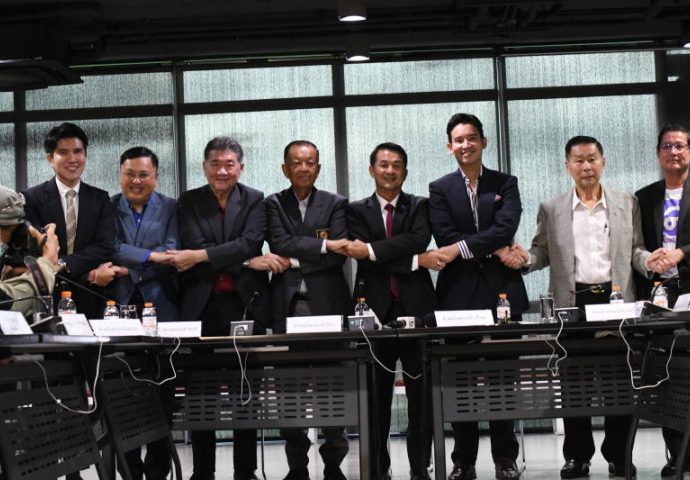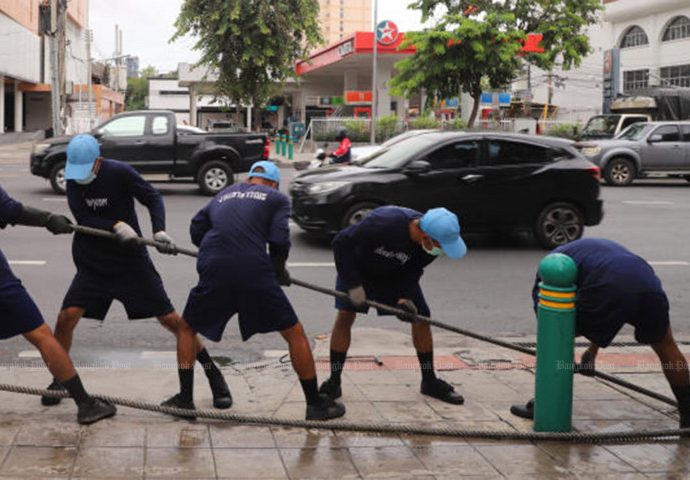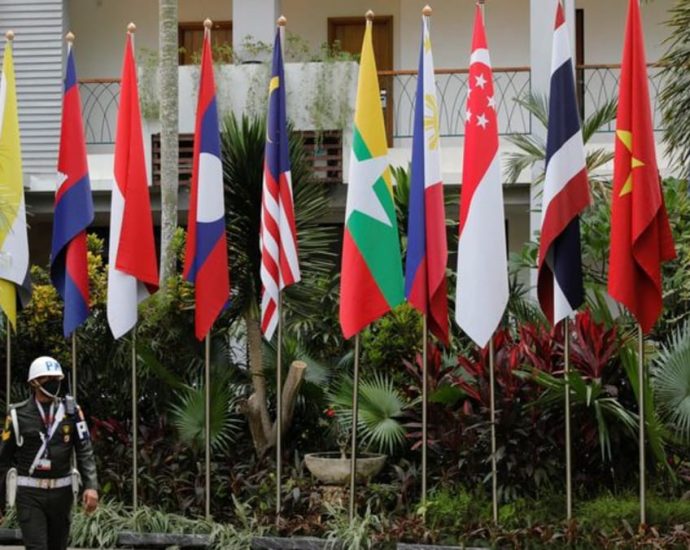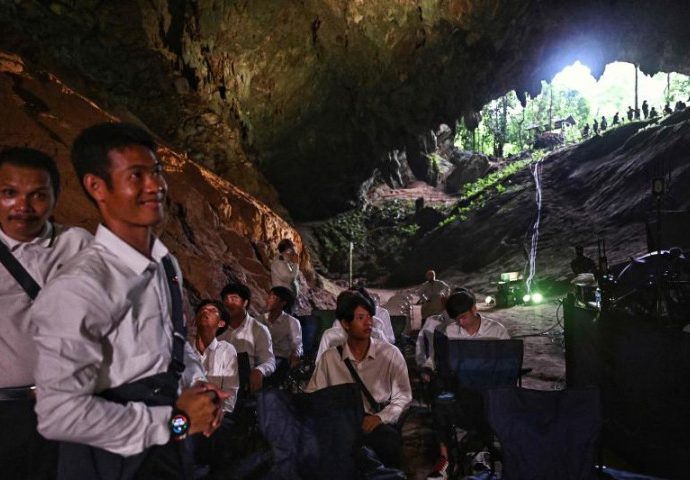China kindergarten stabbing: What’s behind spate of attacks?
 Reuters
ReutersWe still know little about what might have caused a man to enter a kindergarten in southern China and stab six people to death.
There are rumours swirling that it was revenge – that one of the dead adults had previously hit the attacker’s child with his or her car. But that does not explain why six died, including three children and a teacher.
These sorts of crimes can feel senseless, and yet also depressingly common.
Go back to the 1990s and things like this were virtually unheard of in China. It’s not that terrible things didn’t happen to children. They did.
There was the horrific incident in March 2001 when a school in the southern province of Jiangxi exploded, killing 41 children. An investigation found the school was doubling as a fireworks factory and the school children as cheap labour.
It was a tragedy that rocked China. There was much soul-searching about the exploitation of children and callous disregard for their safety. But their deaths were an accident.
Then, starting from around 2010, something began to change. That year, there was a sudden spate of knife attacks in which 17 children were killed.
This was something completely different. The children had been deliberately targeted to cause maximum pain and outrage.
China’s then Premier, Wen Jiabao, visited the scene of one of the attacks and immediately called for more security at schools. But he also said the underlying “social tensions” that led to such crimes must be addressed.
It was an interesting use of words. It suggests that these apparently senseless crimes do have a logic to them.
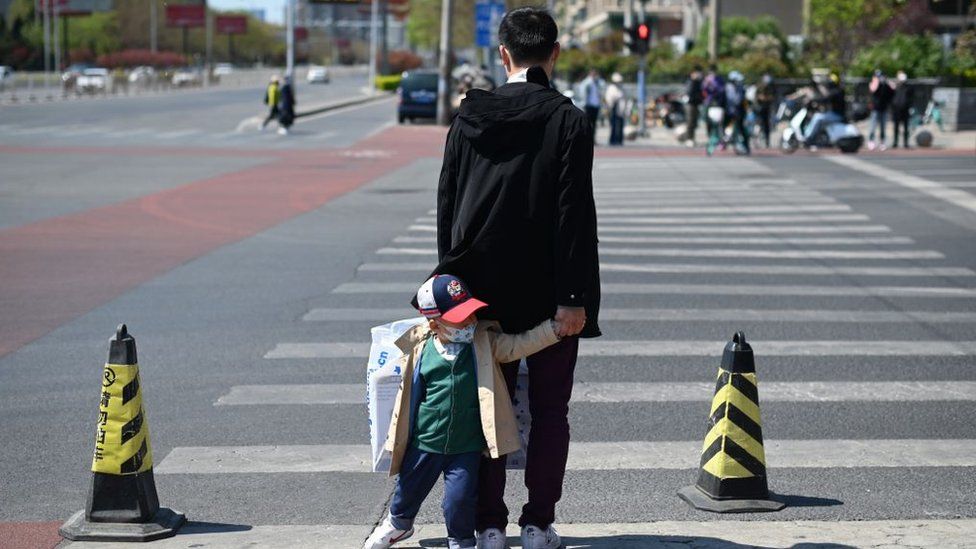
Since then, China has witnessed a significant increase in such attacks, almost always by men, almost always designed to cause maximum outrage.
In 2018, a man walked in to a packed school room in south-west China’s Yunnan province and began spraying the children with corrosive chemicals. Thankfully, none of them died. But 50 were sent to hospital, some with serious injuries.
What could cause someone to buy and mix the chemicals, then carefully plan and carry out such an attack?
It is not a phenomenon unique to China.
In 2019 in the Japanese city of Kyoto, a disgruntled man in his 40s sprayed gasoline on to the entrance of an animation studio and set fire to it. In the ensuing inferno, 36 young animators died, most of them women. The man told police he wanted revenge against the studio for stealing his ideas.
Experts say such men, and they are almost always men, fit a profile.
They have festering anger and resentment towards the society they live in, but do not feel part of.
By carrying out a sensational and violent crime, they bring notoriety to themselves, while inflicting pain and suffering on the society they hate.
But China may have some additional factors that have driven the recent rise in such crimes.
In the last two decades, China has gone through an extraordinary social and economic transition, from centrally planned socialist state to a hyper-competitive free-market economy, where some have become very wealthy and others have been left out of the bonanza.
Chinese people now joke that if you want a girlfriend, you need to have a nice car, and if you want a wife, you first need an apartment.
But this isn’t really a joke.
Men with low social status, who earn low wages or are unemployed, have little prospect of finding a mate. This has been further exacerbated by the Covid pandemic, during which millions of Chinese spent months locked in their apartments, and a youth unemployment rate that hovers around 20%.
China now has a term for mass knife attacks and mass outrages. They are called “social revenge”. Arguably, the conditions that led to the first social revenge attacks over a decade ago have only got worse.
Related Topics
Dark Pink, Ocean Buffalo: Hackers and cyber-espionage in SEA
A lack of bloodshed doesn’t mean an absence of war.
For the past two years, a cyber conflict has quietly boiled across the Asia Pacific region. At the centre of the virtual fighting is a shadowy figure: known to some as Ocean Buffalo or to others as Dark Pink. Not to be mistaken for the K-pop group with a similar name, the enigmatic hacker group has been targeting government and military agencies mainly in Southeast Asia but also as far away as eastern Europe.
“Every attack starts from a human,” said Dmitry Volkov, CEO and co-founder of the global cybersecurity provider Group-IB, a private firm that works with national authorities and groups such as Interpol.
The company has been tracking the hacks and came up with the Dark Pink codename. The use of such names is a common practice in the cybersecurity sector, where analysts caution there’s seldom any true certainty in nailing down organisations that exist only as digital shadows.
Since the hacker organisation’s attacks gained public attention in June 2021, the perpetrators have infiltrated 13 entities, mostly in Southeast Asia. This spree targeted government agencies in Brunei, Cambodia, Indonesia and Bosnia and Herzegovina; military bodies in Malaysia, the Philippines and Thailand; and religious groups, non-profit organisations and educational institutions in Vietnam and Belgium.
The latest moves triggered major concerns among international cybersecurity experts who say the scope of the attacks might be much broader than they originally thought.
But analysts also say the group is just one of many engaged in constant, simmering cyber-espionage campaigns across the region and beyond. As the world increasingly goes digital, both criminal groups and national intelligence organisations alike have pushed fast-developing techniques to more efficiently break down defences, steal information and carry out attacks of real-world significance. Sometimes, as with Dark Pink or Ocean Buffalo, the line between rogue groups and officially sanctioned activities is blurry as can be.
“There’s a lot of sensationalising around it,” Aaron Ng, senior systems engineer at CrowdStrike, another global cybersecurity firm that came up with the Ocean Buffalo name. “At the core, it is really just an extension of spycraft evolving with the times. Like a business adopting digital technologies, spying organisations across the world also have to follow the trend.”
According to Group-IB, Dark Pink seems to follow that pattern. The entity’s latest intrusion was detected in May, showing no sign of an end to its espionage campaign.
“Dark Pink has a strong focus on military organisations,” Volkov said. “They want to get military secrets and we need to think a few steps ahead if we want to catch who’s behind these attacks.”
They started off primarily as an instrument of the state.
Aaron Ng, CrowdStrike
But while the group gained publicity as Dark Pink only two years ago, there are hints that suggest its true origins could extend much further back. Threat intelligence at CrowdStrike reported the group’s attacks bear a very close similarity to the activities of what they’ve been referring to as Ocean Buffalo, a hacker entity that has likely been working since 2012. CrowdStrike believes the earlier-detected group is likely connected to the Vietnamese government – and maybe only recently turned outwards into the rest of the world.
“We have been tracking these intrusion activities for so many years, but we attribute the intrusions to the group Ocean Buffalo,” said Ng. “Ocean Buffalo has been around for more than a decade now and they started off primarily as an instrument of the state to perform domestic surveillance.”
According to Ng’s experience researching the group’s activities, Ocean Buffalo’s modus operandi matches with that of what Group-IB is tracking as Dark Pink. As earlier research already confirmed that Ocean Buffalo was Vietnam-originated, CrowdStrike has strong reasons to believe that so is Dark Pink.
The inherently secretive nature of digital espionage helps give cover to such organisations as they evolve and expand their reach. Even if groups such as CrowdStrike are confident about the origins of Ocean Buffalo, national cybersecurity authorities in Southeast Asia are still investigating the nature of Dark Pink. The group’s attacks were mostly carried out through sophisticated custom malware and “spear-phishing” emails aimed at specific users.
Both experts explained that cyberattacks almost always begin with gathering information on the data potential and internal procedures of the targeted organisation.
While Ocean Buffalo may have Vietnamese roots, Ng believes the vast majority of today’s cyberattacks across Southeast Asia are carried out by groups from China for the purposes of intelligence gathering and economic espionage.
“That often means collecting information that would help them with better foreign policy decision-making and that fits the Chinese communist regime’s agenda,” he said. “For example, gathering information about dissidents who live abroad.”
Ng added that he saw a correlation between the Chinese governments five-year policy plan and the nature of the intellectual property threats happening in the cyber-realm. He also pointed to the conflicting interests of China and Vietnam in the disputed South China Sea as another thread carrying over into the digital world.
“Intelligence is inherently political,” Ng said. “The countries would collect information that would help them with better foreign policy decision-making.”
While sharing similar perspectives on the reasons behind cyberattacks, Group-IB refrained from calling out any specific country. However, they linked the early intrusions by Dark Pink to a sequence of attacks in Vietnam and Indonesia in mid-2021.
The hacking group was seemingly inactive throughout the second half of last year. But Group-IB was later able to link several attacks on government institutions in Indonesia, Malaysia and Thailand to Dark Pink using digital evidence gathered through the analysis of past infection chains.
“We identified Dark Pink attackers in their early stage, information gathering,” Volkov said. “That’s why we are motivated to follow their steps and find them before they get a command to disrupt some kind of military operations in the Asia Pacific region.”
What is most concerning, according to Group-IB, is that once the threat group gains access to its target, it can remain undetected and control the conquered cyberspace.
Threats are similar everywhere, but the devil is in the details
Dmitry Volkov, Group-IB
Whoever is behind Dark Pink is clearly skilled in keeping their activities original enough to remain active while getting away with their crimes.
According to malware analysts at Group-IB, Dark Pink uses spear-phishing to gain initial access and tricks users into opening a file that looks like it’s from Microsoft Word but is really a virus.
The group also uses the off-the-shelf commercial programme Microsoft Build to launch a highly advanced form of malware called KamiKakaBot, which can control devices and steal sensitive information while evading detection by anti-virus software. Through commands from a Telegram channel, hackers can use this tool to intercept key data by placing their attack between an infected system and the targeted institution.
The use of the well-known Microsoft Build and a popular communication platform such as Telegram makes it even more difficult to diagnose and prevent these attacks.
Speaking generally, Volkov said organisations should take measures to protect their systems and users from such attacks, such as educating employees on the risks of spear-phishing. He also said countries should invest more on a national level to train experts who can stay up-to-date on the rapidly evolving cybersecurity landscape.
“Threats are similar everywhere, but the devil is in the details,” he said. “We need to understand how exactly these threat factors are able to bypass different security control systems. Without this knowledge, it is impossible to develop the right protection technologies and respond effectively to cyber threats.”
Given the persistent, international threat posed by groups such as Dark Pink and Ocean Buffalo, the analysts who spoke to Globe said it was crucial for governments and international organisations to stay ahead of the curve in the digital arms race.
“This is the reason why threat intelligence exists,” said Volkov. “We try to understand what happens in one region, then structure the collected information and share it with the rest of the world so other regions can be prepared in advance.”
Tony Fernandes to focus on AirAsia after selling all QPR shares, ending co-ownership of football club
KUALA LUMPUR: Capital A chief executive officer Tony Fernandes has disposed of his entire shareholding in QPR Holdings, the parent company of Queens Park Rangers Football Club (QPR) said on Monday (Jul 10). Capital A also said that this strategic move will allow Mr Fernandes to concentrate his time and efforts onContinue Reading
UTN, Bhumjaithai against forming minority govt

The United Thai Nation (UTN) and Bhumjaithai parties on Monday voiced opposition to any attempts to form a minority government as the vote to select the country’s next prime minister approaches.
UTN leader Pirapan Salirathavibhaga said via Facebook that the party would not nominate Prime Minister Prayut Chan-o-cha or himself for the PM post at the prime ministerial election in parliament on Thursday because it does not support the establishment of a minority government.
He said the party would not vote for a prime minister candidate from a party whose policies run counter to the constitution, especially when that party seeks to amend the lese majeste law and the three main pillars of the country (nation, religion, and monarchy).
Mr Pirapan said he assigned UTN secretary-general Akanat Promphan to propose this stance for the party’s consideration and pass it into a resolution when it meets on Tuesday.
The meeting is set to determine how the party will vote in Thursday’s prime ministerial election.
“It’s clear and straightforward and should leave no room for any interpretation. Our duty is to protect the country from harm,” he said.
Also, Bhumjaithai leader Anutin Charnvirakul said the party has consistently made its stance clear that it will not support a minority government and amendments to the lese majeste law.
He declined to comment on MFP leader Pita Limjaroenrat’s campaign to drum up support for his bid to become the prime minister, seen by the MFP’s critics as pressuring the Senate ahead of Thursday’s vote.
Mr Pita, the MFP’s sole prime minister candidate, commands 312 votes from the MFP-led alliance and is still shy of 64 votes to be elected prime minister. He has appealed to the Senate to help make up for the shortfall, as MPs from parties in the opposite wing are not likely to break rank and vote for him.
There are doubts he will be able to get the votes he needs in the first round.
Mr Anutin said the House speaker would have to decide what to do next in case Mr Pita could not muster enough support after two rounds of voting.
He said he was not intimidated by the prospect of a “witch hunt” after the prime minister vote, noting that MPs and senators should be free to exercise their judgement.
Asked if Bhumjaithai would join the coalition if Pheu Thai, the second largest party, took the lead in coalition formation, Mr Anutin said it would depend on policies and guidelines, adding that now was not the time to consider this.
Gaming firm Razer probing âpotential hackâ after data offered for US$100,000 worth of crypto
SINGAPORE: Gaming hardware company Razer said on Monday (Jul 10) that it is investigating a potential hack that affected its digital wallet Razer Gold, which customers use to purchase games and in-game content. This comes about three years after Razer suffered a cybersecurity breach that led to the personal information,Continue Reading
Bangkok sewers ‘ready’ for the rain

City Hall has made repairs in more than 500 of 700 areas at high risk of flooding in Bangkok, with officials stating that most low-lying areas can be drained within an hour.
Bangkok governor Chadchart Sittipunt said that Monday’s heavy rain had flooded many areas in the city with the highest water level of 38mm recorded in the Thon Buri area.
The deluge was reported to have caused congestion Monday morning on Chaeng Watthana Road, Vibhavadi Rangsit Road, Bang Khen Roundabout and Rat Burana Road, among others. However, most floodwater was drained within an hour.
Mr Chadchart said that the Bangkok Metropolitan Administration (BMA) had been continuously dredging the drainage system all across the city. However, work was delayed due to many staff from the operation team falling ill with Covid-19.
”More than 500 of 700 flood-prone spots in Bangkok have been fixed and many water pumps were installed to help drain city floods as soon as possible,” he said.
Mr Chadchart also assigned related agencies to handle city floods and look out for commercial and household waste not properly disposed of along the drainage system.
To solve the flood issue in the long run, Mr Chadchart said that the BMA has drafted a blueprint for a newly-designed drainage network flowing out of the city via canals or water tunnels. However, canal communities remain a challenge as dredging often affects the areas they inhabit, he said.
Mr Chadchart said it is crucial to relocate the people living around canals to areas where they can have houses on firm foundations. The BMA will work with the Royal Irrigation Department to improve canal dredging as well as canal community relocation, he said
On Monday the Bangkok Flood Control Centre reported that, from 6-6.30am, Bangkok had moderate rain in Thon Buri areas along the Chao Phraya River, Bang Sue district, Chatuchak district, Phaya Thai district, Ratchathewi district and Pathumwan district.
Bang Bon district was reported as the area with the most rainfall, 37.5-38.5mm.
No decision on Pita’s shareholding yet

The Election Commission has not decided whether to send the iTV shareholding case of prime ministerial candidate Pita Limcharoenrat to the Constitution Court, according to its chair.
EC chairman Ittiporn Boonpracong said after the commission’s meeting on Monday evening that the commission only followed up progress from its fact-finding committee looking into the case of Mr Pita.
The EC earlier received complaints about Mr Pita’s eligibility for political office regarding his past shareholding in iTV.
The commission was asked to forward the case to the Constitution Court which could rule on Mr Pita’s eligibility for political office. If the court accepts the case, it can suspend Mr Pita from political roles pending its ruling.
The constitution prohibits a shareholder of a media organisation from running in a general election. Anyone who runs in a general election while knowing he is unqualified is liable to an imprisonment, fine and political ban. Mr Pita earlier said he had 42,000 shares in iTV only in his capacity as the executor of his late father’s estate.
Mr Pita is the leader and prime ministerial candidate of the election-winning Move Forward Party. MFP and its seven coalition allies agreed to nominate him as prime minister for the House and the Senate to vote on Thursday.
The eight coalition allies had 312 votes in the House and needed at least 64 votes in his favour from senators to secure Mr Pita’s premiership.
The constitution allows 250 senators to join 500 House representatives in voting for a prime ministerial candidate. A prime minister needs support from the majority of the two houses or at least 376 votes from their joint sitting.
On Monday Mr Pita wrote to the EC to ask it to listen to his defence on the iTV shareholding controversy.
In a TV programme interview on Monday Mr Pita refused to reveal the number of senators who would vote for him. He said negotiations with senators were making good progress.
As some senators disagreed with his party’s policy to amend the lese majeste law, Mr Pita said his party only intended to prevent any abuse of the law.
Some senators also said they could abstain in the prime ministerial vote due to the questioned qualification of Mr Pita in running in the general election.
Mr Pita declined to comment on a possible solution in case he fails to gather enough votes for his premiership from the House and the Senate.
The Move Forward Party leader on Sunday said he hoped the House and the Senate would vote in line with the people’s choice in the May 14 general election.
ASEAN foreign ministers to meet amid worsening Myanmar crisis
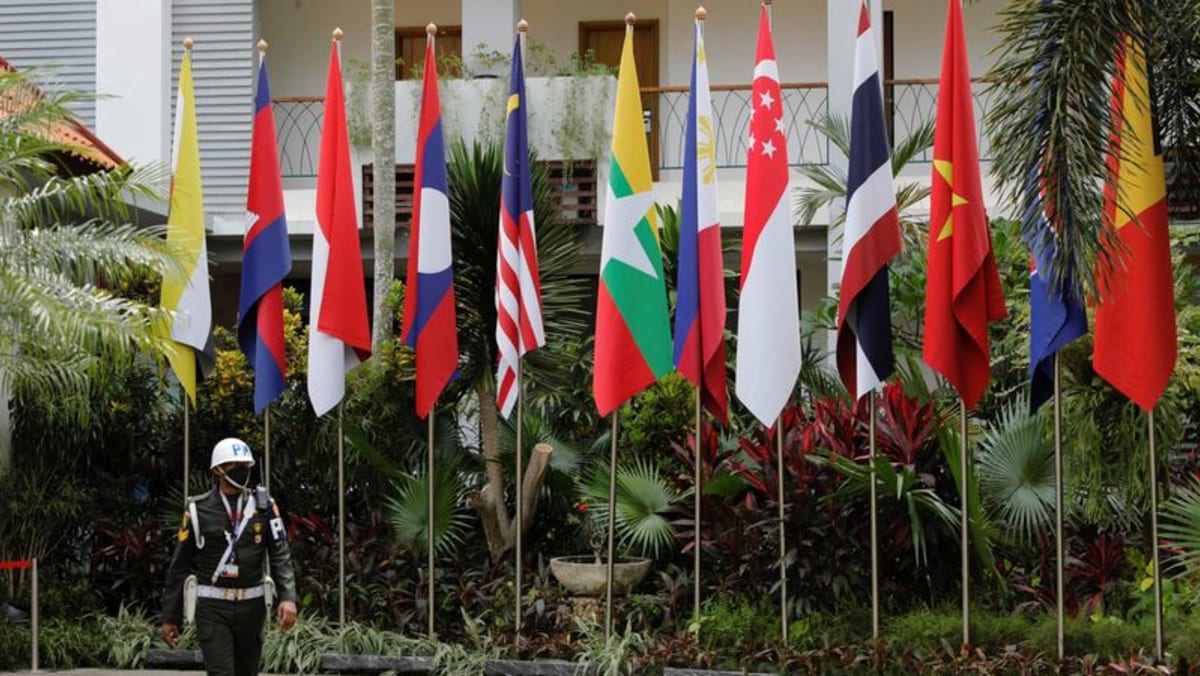
While ASEAN has sent some aid to the country, it has not been able to make further inroads to get victims of the disaster more urgently-needed support, as the military government restricts assistance from international agencies.
This is unlike Cyclone Nargis in 2008, when the grouping managed to broker talks between the then-regime and the UN.
Back then, the West had threatened to apply what is known as the Responsibility to Protect (R2P) on Myanmar, an international principle aimed at protecting civilians.
Observers said the West is currently preoccupied with crises closer to home, and is unlikely to put more pressure on Myanmar in the immediate future.
“Today, it is different. The West is distracted. They have their own problems with (the) ongoing – and possibly protracted – war in Ukraine. And even if the war was to end tomorrow, they will be talking about the reconstruction of Ukraine,” said Ms Sharon Seah, coordinator of the ASEAN Studies Centre at the ISEAS – Yusof Ishak Institute.
“So, those kinds of considerations (such as Myanmar) are no longer there. There is no impetus for any party to quickly step up and work on this.”
RE-ENGAGEMENT WITH MYANMAR
Last year, the bloc made a rare but firm decision to leave Myanmar’s junta out of ASEAN summits and foreign ministers’ meetings.
Some ASEAN member states have recently suggested re-engaging with Myanmar’s military.
Thailand has gone one step further by planning informal talks with the Myanmar army.
Experts said Thailand’s move to initiate dialogue is a positive step forward that could pave the way for more talks with other stakeholders, both within and outside Myanmar.
But Ms Seah cautioned that Thailand should consult the ASEAN Chair so that discussions can align with the Five-Point Consensus, a peace plan adopted in April 2021 between the bloc and Myanmar’s military leaders.
Despite agreeing with the plan, the junta has largely ignored the consensus and little progress has been made in its implementation.
ASEAN leaders have said they will engage with all stakeholders in Myanmar.
However, they also reaffirmed their position at the recent summit in May, where the grouping agreed – again – that the junta will be left out of meetings at the foreign ministers’ and leaders’ level.
Despite international backlash for the bloc’s reluctance to take more drastic action on the junta, some observers argue that ASEAN’s current stance shows that it is united.
This, despite differing opinions on how to deal with Myanmar.
“We see a division in views. There is a group of Myanmar’s most immediate neighbours wanting to solve these issues. On the other hand, there’s another group of countries that have not clearly articulated why they cannot engage with Myanmar,” said Ms Seah.
As ASEAN foreign ministers prepare for this week’s summit, all eyes will be on whether they are able to reach common ground in resolving the crisis engulfing Myanmar.
AI is an existential threat â just not the way you think
The rise of ChatGPT and similar artificial intelligence systems has been accompanied by a sharp increase in anxiety about AI. For the past few months, executives and AI safety researchers have been offering predictions, dubbed “P(doom),” about the probability that AI will bring about a large-scale catastrophe.
Worries peaked in May 2023 when the nonprofit research and advocacy organization Center for AI Safety released a one-sentence statement: “Mitigating the risk of extinction from AI should be a global priority alongside other societal-scale risks, such as pandemics and nuclear war.”
The statement was signed by many key players in the field, including the leaders of OpenAI, Google and Anthropic, as well as two of the so-called “godfathers” of AI: Geoffrey Hinton and Yoshua Bengio.
You might ask how such existential fears are supposed to play out. One famous scenario is the “paper clip maximizer” thought experiment articulated by Oxford philosopher Nick Bostrom. The idea is that an AI system tasked with producing as many paper clips as possible might go to extraordinary lengths to find raw materials, like destroying factories and causing car accidents.
A less resource-intensive variation has an AI tasked with procuring a reservation to a popular restaurant shutting down cellular networks and traffic lights in order to prevent other patrons from getting a table.
Office supplies or dinner, the basic idea is the same: AI is fast becoming an alien intelligence, good at accomplishing goals but dangerous because it won’t necessarily align with the moral values of its creators. And, in its most extreme version, this argument morphs into explicit anxieties about AIs enslaving or destroying the human race.

[embedded content]
Actual harm
In the past few years, my colleagues and I at UMass Boston’s Applied Ethics Center have been studying the impact of engagement with AI on people’s understanding of themselves, and I believe these catastrophic anxieties are overblown and misdirected.
Yes, AI’s ability to create convincing deep-fake video and audio is frightening, and it can be abused by people with bad intent. In fact, that is already happening: Russian operatives likely attempted to embarrass Kremlin critic Bill Browder by ensnaring him in a conversation with an avatar for former Ukrainian President Petro Poroshenko. Cybercriminals have been using AI voice cloning for a variety of crimes – from high-tech heists to ordinary scams.
AI decision-making systems that offer loan approval and hiring recommendations carry the risk of algorithmic bias, since the training data and decision models they run on reflect long-standing social prejudices.
These are big problems, and they require the attention of policymakers. But they have been around for a while, and they are hardly cataclysmic.
Not in the same league
The statement from the Center for AI Safety lumped AI in with pandemics and nuclear weapons as a major risk to civilization. There are problems with that comparison. Covid-19 resulted in almost 7 million deaths worldwide, brought on a massive and continuing mental health crisis and created economic challenges, including chronic supply chain shortages and runaway inflation.
Nuclear weapons probably killed more than 200,000 people in Hiroshima and Nagasaki in 1945, claimed many more lives from cancer in the years that followed, generated decades of profound anxiety during the Cold War and brought the world to the brink of annihilation during the Cuban Missile crisis in 1962.
They have also changed the calculations of national leaders on how to respond to international aggression, as currently playing out with Russia’s invasion of Ukraine.
AI is simply nowhere near gaining the ability to do this kind of damage. The paper clip scenario and others like it are science fiction. Existing AI applications execute specific tasks rather than making broad judgments.
The technology is far from being able to decide on and then plan out the goals and subordinate goals necessary for shutting down traffic in order to get you a seat in a restaurant, or blowing up a car factory in order to satisfy your itch for paper clips.
Not only does the technology lack the complicated capacity for multilayer judgment that’s involved in these scenarios, it also does not have autonomous access to sufficient parts of our critical infrastructure to start causing that kind of damage.
What it means to be human
Actually, there is an existential danger inherent in using AI, but that risk is existential in the philosophical rather than apocalyptic sense. AI in its current form can alter the way people view themselves. It can degrade abilities and experiences that people consider essential to being human.

For example, humans are judgment-making creatures. People rationally weigh particulars and make daily judgment calls at work and during leisure time about whom to hire, who should get a loan, what to watch and so on. But more and more of these judgments are being automated and farmed out to algorithms. As that happens, the world won’t end. But people will gradually lose the capacity to make these judgments themselves. The fewer of them people make, the worse they are likely to become at making them.
Or consider the role of chance in people’s lives. Humans value serendipitous encounters: coming across a place, person or activity by accident, being drawn into it and retrospectively appreciating the role accident played in these meaningful finds. But the role of algorithmic recommendation engines is to reduce that kind of serendipity and replace it with planning and prediction.
Finally, consider ChatGPT’s writing capabilities. The technology is in the process of eliminating the role of writing assignments in higher education. If it does, educators will lose a key tool for teaching students how to think critically.
Not dead but diminished
So, no, AI won’t blow up the world. But the increasingly uncritical embrace of it, in a variety of narrow contexts, means the gradual erosion of some of humans’ most important skills. Algorithms are already undermining people’s capacity to make judgments, enjoy serendipitous encounters and hone critical thinking.
The human species will survive such losses. But our way of existing will be impoverished in the process. The fantastic anxieties around the coming AI cataclysm, singularity, Skynet, or however you might think of it, obscure these more subtle costs.
Recall T S Eliot’s famous closing lines of “The Hollow Men”: “This is the way the world ends,” he wrote, “not with a bang but a whimper.”
Nir Eisikovits is Professor of Philosophy and Director, Applied Ethics Center, UMass Boston
This article is republished from The Conversation under a Creative Commons license. Read the original article.
Wild Boars mark cave rescue 5-year anniversary

Hundreds of people gathered on Monday to mark the five-year anniversary of the dramatic rescue against impossible odds of 12 young footballers from a flooded cave in northern Chiang Rai province.
Now in their late teens, the boys and their coach, Ekkapol Chantawong, descended into the spotlit chambers of the Tham Luang cave complex to pay tribute to the thousands of people who worked for 18 days and nights to get them out.
The “Wild Boars” team had entered the caves in June 2018 and were trapped when rains flooded the complex, emerging after a daring international rescue operation to global acclaim.
“If it weren’t for these people we wouldn’t have survived, and wouldn’t have been alive this day,” Mr Ekkapol said.
“I’d like to say thank you to all of you from the bottom of my heart.”

Members of the Thai “Wild Boars” youth football team line up to pay respects to their late teammate Duangphet “Dom” Phromthep outside the Tham Luang Cave on Monday.
But the joyful anniversary was tinged with sadness following the death of 17-year-old captain Duangpetch Promthep, who passed away while on a football scholarship in Britain earlier this year.
His former teammates each laid white flowers at a memorial image of him outside the caves, surrounded by crowds in the bright sunlight and vivid jungle flora.
A video tribute was also played inside the cave for ex-Chiang Rai governor Narongsak Osatanakorn, who won plaudits for his handling of the incident, and who died last month.
“We must not forget the efforts of everyone involved in the rescue mission, especially of those who are no longer here with us,” said Varawut Silpa-archa, minister of natural resources and environment.
Offerings were also made to Jao Mae Nang Nong — a legendary princess said to be the spirit of the caves in which she supposedly died, and who was frequently invoked for strength during the rescue.

The boys were on a day trip to the cave complex on June 23, 2018, when heavy rains flooded the complex via underground waterways.
They were feared dead until two British cave divers negotiated a series of narrow waterways and corridors and found them on July 2, trapped in a deep chamber, four kilometres from the entrance.
The next hurdle was safely moving the boys and their coach out of the caves.
In a highly risky operation, they were sedated, dressed in wetsuits and breathing apparatus, and hauled through the complex by foreign cave hobbyists, expert divers, and a team of Thai navy SEALs including Saman Kunan, who died during the rescue.
Despite the odds, the boys and their coach all made it out alive.

Adul Sam-on, one of the footballers who shot to fame after he thanked the divers who found them in English, was granted Thai nationality following the rescue, as were his coach and two teammates.
Speaking on Monday, the now-19-year-old said he had just graduated high school in the United States, and would shortly be attending university.
While there has been a steady stream of books, TV series, and film adaptations of the rescue, the boys themselves have mostly kept out of the limelight.
Mongkol Booneiam, known as Mark, said he still lives — and plays football — in a nearby village.
“If I have free time then I try to go play,” he said.






